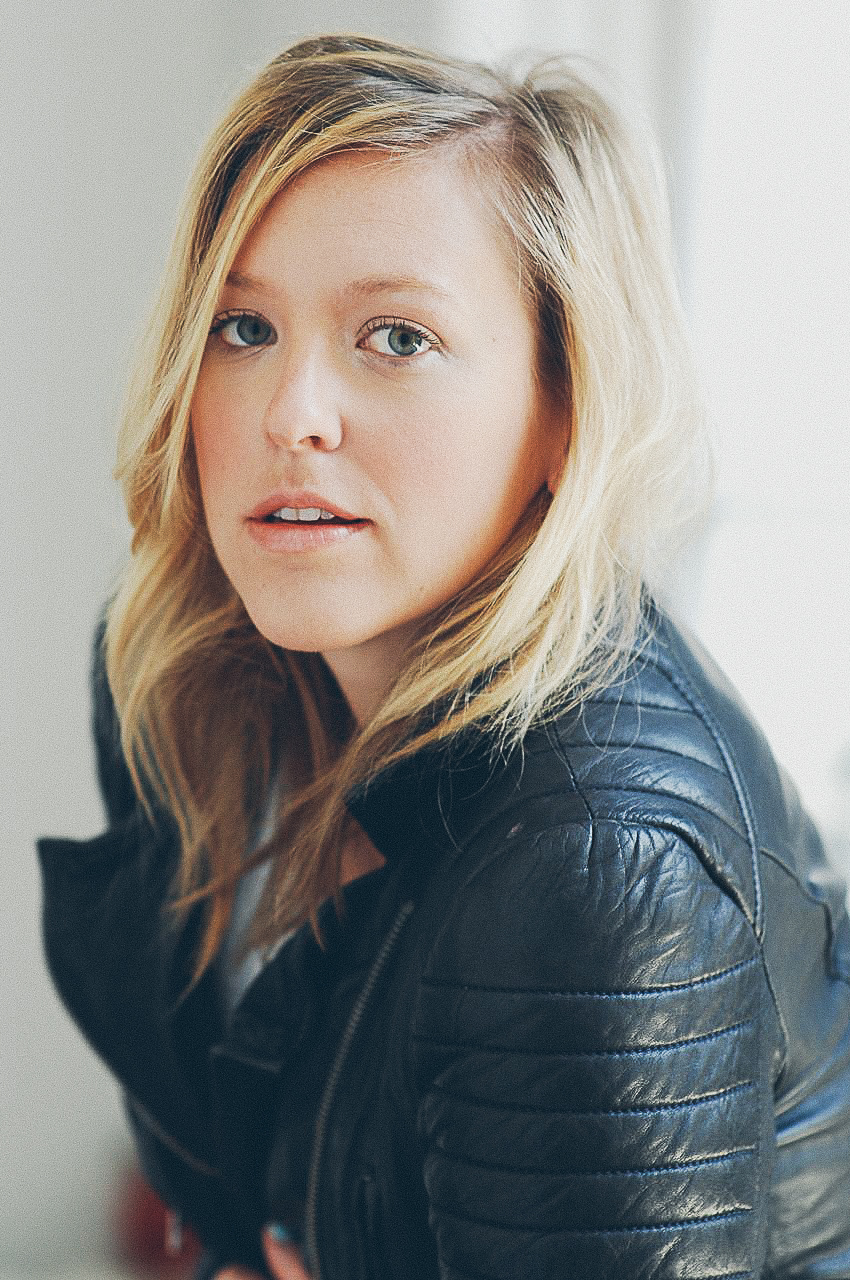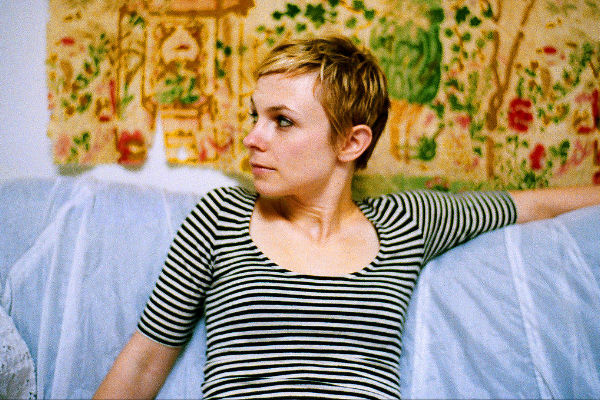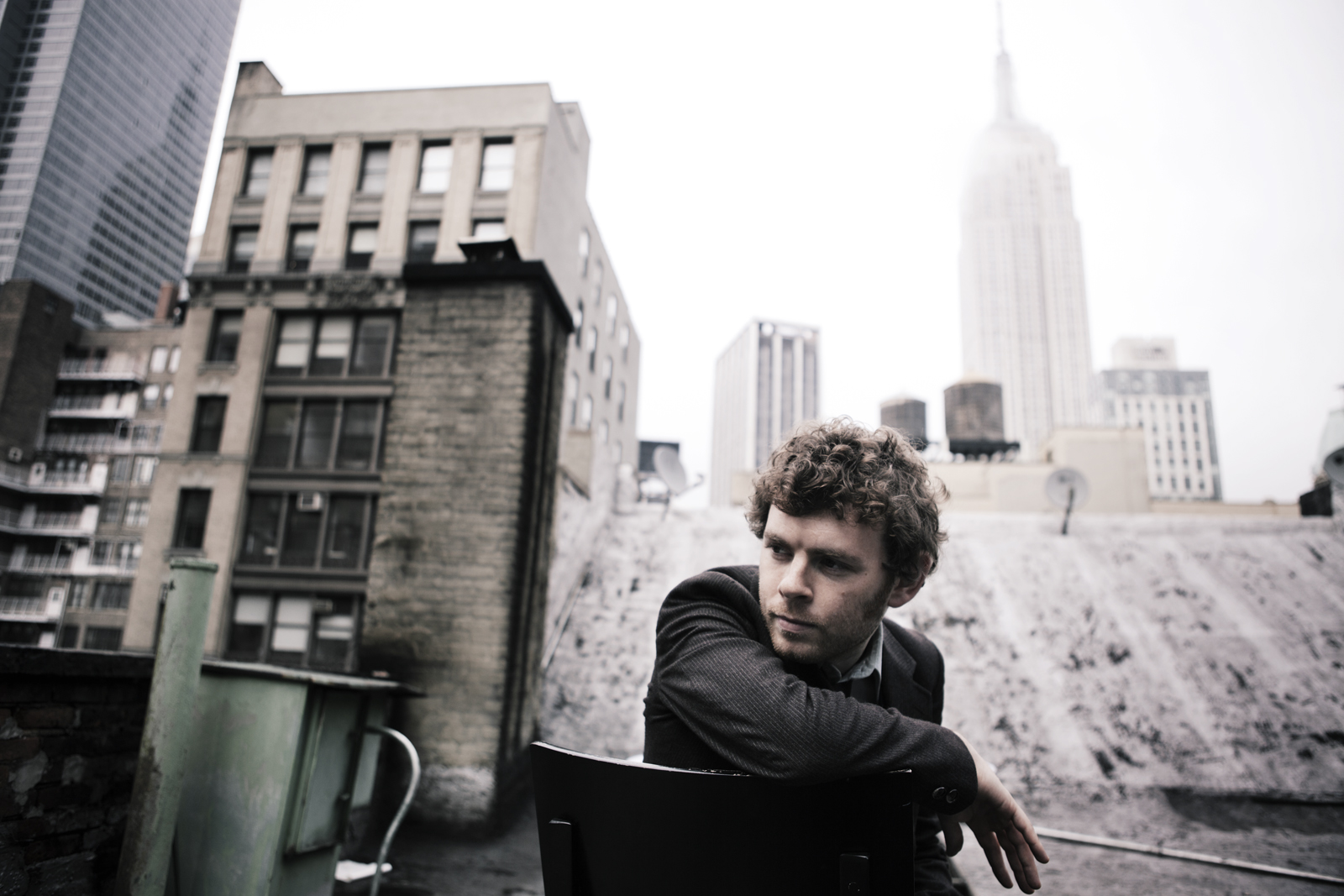Videos by American Songwriter
Matthew Perryman Jones gets metaphysical in our latest Writer Of The Week interview, in which the Nashville-based singer-songwriter discusses his new album, Land Of The Living, which was funded by fans, his approach to songwriting and more. “I wanted this record to be unabashedly human,” says Jones. Mission accomplished.
How did Land of the Living come together?
I worked on this record with my good friend Cason Cooley (producer). We had talked about making a record together for years. It was good to finally work together. We pulled together a few other friends to play on the record and went out to Round Top, Texas to record it. There’s a studio a friend of ours works at on a 20 acre ranch. It’s in the middle of nowhere. The studio is an old Amish barn that was built in the 1700’s. The environment is incredibly inspiring, and haunted. At least 4 of us had ghost encounters while we were there. We spent 8 days there tracking the record live with the band. There was no time to over-think anything. We basically had to trust our instincts and go with it. I think we captured something really special.
How would you describe the album?
This record deals a lot with grief. I lost my father three years ago and so that couldn’t help but find it’s way into this record. I wanted this record to be unabashedly human. I found myself constantly fighting off the internal critics and hipsters who would try to instruct me on what was cool and relevant. At times during the writing process I would audibly yell at these imaginary people. While writing for this record I discovered the writings of Federico Garcia Lorca and the idea of “duende.” I stumbled upon this excerpt from a lecture Nick Cave gave on “Duende” [Vienna, 1999]. It really affirmed how I was approaching this record and gave me confidence to stay the course. I think it sums up what I would hope to say about this record:
“In his brilliant lecture entitled “The Theory and Function of Duende” Federico García Lorca attempts to shed some light on the eerie and inexplicable sadness that lives in the heart of certain works of art. “All that has dark sound has duende”, he says, “that mysterious power that everyone feels but no philosopher can explain.” In contemporary rock music, the area in which I operate, music seems less inclined to have its soul, restless and quivering, the sadness that Lorca talks about. Excitement, often; anger, sometimes: but true sadness, rarely, Bob Dylan has always had it. Leonard Cohen deals specifically in it. It pursues Van Morrison like a black dog and though he tries to he cannot escape it. Tom Waits and Neil Young can summon it. It haunts Polly Harvey. My friends the Dirty Three have it by the bucket load. The band Spiritualized are excited by it. Tindersticks desperately want it, but all in all it would appear that duende is too fragile to survive the brutality of technology and the ever increasing acceleration of the music industry. Perhaps there is just no money in sadness, no dollars in duende. Sadness or duende needs space to breathe. Melancholy hates haste and floats in silence. It must be handled with care.” All love songs must contain duende. For the love song is never truly happy. It must first embrace the potential for pain. Those songs that speak of love without having within in their lines an ache or a sigh are not love songs at all but rather Hate Songs disguised as love songs, and are not to be trusted. These songs deny us our humanness and our God-given right to be sad and the air-waves are littered with them. The love song must resonate with the susurration of sorrow, the tintinnabulation of grief. The writer who refuses to explore the darker regions of the heart will never be able to write convincingly about the wonder, the magic and the joy of love for just as goodness cannot be trusted unless it has breathed the same air as evil – the enduring metaphor of Christ crucified between two criminals comes to mind here – so within the fabric of the love song, within its melody, its lyric, one must sense an acknowledgement of its capacity for suffering.”
Who are your songwriting heroes?
Peter Gabriel, Leonard Cohen, Emmylou Harris (Red Dirt Girl is a goldmine), Rufus Wainwright and Patty Griffin are all top tier for me.
When did you start writing songs? Were they good right away, or did that come later?
I started writing in high school. I played guitar in a band called This Island Earth and ended up being the lead singer. At that point I started writing for the band. Honestly, it wasn’t terrible, nor was it particularly good, but it seemed like there was something there to work with. in my early 20’s I got more into folk music and started focusing a lot on the lyric. However, looking back, those songs were too much. I was trying to write novels into songs. Around 2000 I was listening to bands like Travis who really inspired me with melody. At that point I really started focusing on writing a good melody. Hopefully through the years I’ve been able to get to a place where both lyric and melody are equally strong. That’s the goal anyway. I’m always striving for that as a songwriter.
What was the first song you ever wrote?
That would be a song I wrote for my band in high school. The song is called “Sunshine Heart.” It has a touch of my youthful optimism and bad lyricism. Here’s a taste of the chorus: “there is sunshine on a rainy day / even if the sun doesn’t show / there is peace in a hateful heart / that’s what we all need to know.” C’mon, I was 15.
What’s your approach to writing lyrics?
Through the years I have strayed far from having a lyrical agenda. I don’t sit down and think, “I’m going to write a song about….” I tend to let the lyric emerge from the shapes and sounds inside a melody; melody comes first for me. I like to discover what I’m writing about later in the process. I took a writer’s block class years ago. One of the exercises we did to unclog writer’s block was stream of conscious writing. The rule was just to write and not think about it. It was not suppose to make any sense. However, invariably I would read back and discover these really great words and lines that were surprising and fresh. I learned from those exercises that there’s a lot of great stuff in the pot and it just takes stirring the pot a bit to see what’s in there. From there I pull out the interesting things that emerge and let that be a starting point. Eventually I get to work on shaping the lyric. I’m very particular about how words sound over the melody. I think that’s incredibly important. So I will belabor a line until I can find the right words that fit the shape and sound of the melody. This is one of the biggest hold-ups when I a co-write. I’m neurotic about it.
What percentage of the songs you write do you finish?
I have hundreds of ideas I’ve recorded. I’m always recording ideas that come to me. Thank you Steve Jobs for Voice Memo on the iPhone! I tend to really get to work and finish the ones I feel are keepers. So most songs that I finish I record. I just have a boat load of unfinished songs. A lot of them are just waiting to be revisited. Overall I’m very ADD with my own songwriting. I’ll start 3 songs in an hour. Finishing is my biggest challenge.
Do you have any standards for your songs you try to adhere by when choosing them for an album?
I suppose the guidelines for picking songs to put on an album are whether I believe it, whether I like to sing it, and what the song asks of the listener. There are some songs that come out that are great but just don’t fit what I do as an artist, if that makes any sense When it comes to having to commit to performing a song I want to be sure I really believe it and can sing it with some conviction. Otherwise I’d rather be doing my taxes. This has become even more of a standard with me in the last couple years. I also have to consider the listener. Is the song too self-indulgent? My songs tend to lean toward the emotional side and I draw from a lot of personal places. I have to be careful that those things are artfully conveyed with a listener in mind.
What sort of things inspire you to write?
I try to write regularly whether I have any particular inspiration or not. Sometimes inspiration sneaks up on me when I’m just sitting there working. I see writing like working an old water pump. You just kind of work it until you tap the water source. But the other times where I have to get a way and write because I’m compelled by some inspiration is usually from something I’ve read or a conversation I’ve had. Also a good long walk tends to get my mind open.
What’s a song on your album you’re particularly proud of?
One song I’m particularly proud of is “The Angels Were Singing.” I wrote this song about losing my father. It’s a heavy theme to write about, but it’s one of the truest songs I’ve written. I remember when I started writing it. I was up late in my studio just playing around with this chord structure and melody idea. As I played I just sang whatever came to mind. The more I sang the more these lyrics came out with thoughts about my father. It was deeply emotional. I knew I had to write this song. I suppose if I were to be proud about something it’s just sticking to writing something so deeply personal.
Is it easier, or harder to write songs, the more you write?
That’s a good question. I think the craft part of putting a song together, structuring and giving it shape, seems a bit more familiar to me and easier to navigate. But I would say the more I write the more I strive for what makes a great song, which is inexplicable. It seems cliche, but I think the hard part is just showing up on a regular basis. You have to be available when the “muse” shows up. Each has to do their part. There is a mystical element in great art, but it can only happen through consistent hard work. The law of probability is at play here. The more one finds a home in a hard chair and keeps working, the greater the chances of stumbling on something special. I think the muse gets off on sweaty, frustrated writers.
What other creative outlets do you have besides songwriting?
I really enjoy painting. A day where I can work on a painting is like a vacation to me.
If you could co-write with anyone, who would it be and why?
Lady Gaga? I’m pretty sure that might help me get my three girls through college. But really I’d love to write with Emmylou Harris. I think she’s amazing. The songs she’s written and put on her records, specifically Red Dirt Girl, are remarkable. Songs like “The Pearl” and “Michelangelo” are brilliant poetry. She has a haunted element in her writing that I find really beautiful.
What song written by someone else do you consider the perfect song?
The first song that comes to mind is “Hallelujah” by Leonard Cohen. I know that seems cliche. But it is unquestionably one of the greatest songs ever written. There’s a reason why it’s covered so much. The song hits the perfect agreement of melody and lyric. It also has that universal human element that anyone who has lived a little bit of life can attach themselves to it.
And the entire lyric of “Take It With Me” by Tom Waits on his record Mule Variations just levels me. It’s so good. Some highlight lyrics would be, “All broken down on the side of the road / I was never more alive or alone / I’ve worn the faces off all the cards / I’m gonna take it with me when I go” and the last line makes my eyes leak every time, “In a land there’s a town / and in that town there’s a house / and in that house is a woman / In that woman there’s a heart I love / I’m gonna take it with me when I go.” This song is astoundingly beautiful. One of the best.













Leave a Reply
Only members can comment. Become a member. Already a member? Log in.